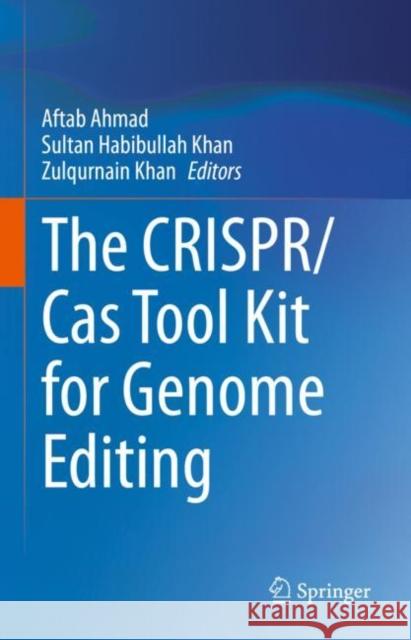The Crispr/Cas Tool Kit for Genome Editing » książka
topmenu
The Crispr/Cas Tool Kit for Genome Editing
ISBN-13: 9789811663048 / Angielski / Twarda / 2021
The Crispr/Cas Tool Kit for Genome Editing
ISBN-13: 9789811663048 / Angielski / Twarda / 2021
cena 687,54
(netto: 654,80 VAT: 5%)
Najniższa cena z 30 dni: 655,41
(netto: 654,80 VAT: 5%)
Najniższa cena z 30 dni: 655,41
Termin realizacji zamówienia:
ok. 16-18 dni roboczych.
ok. 16-18 dni roboczych.
Darmowa dostawa!
This book discusses CRISPR/Cas- one of the most powerful tools available to scientists for genome editing. CRISPR/Cas is not only a genome editing tool, but researchers have also engineered it for gene regulation, genome imaging, base editing and epigenome regulations. This book describes the entire toolkit for CRISPR/Cas. The opening section gives an introduction to the technique and compares it with other genome editing tools. Further section gives a historical perspective of the tool, along with its detailed classification. The next chapters describe bioinformatic tools in CRISPR/Cas, and delivery methods for CRISPR/Cas. The book also discusses about the applications of CRISPR/Cas beyond genome editing and use of CRISPR for rewriting genetic codes. The book dedicates a section to the use of CRISPR in plants. The book culminates with a chapter on the current status, challenges and shortcomings of the CRISPR/Cas genome editing tool.
The book would be highly interesting to students and researchers in molecular biology, biochemistry, biotechnology, food science, agriculture and plant sciences.











